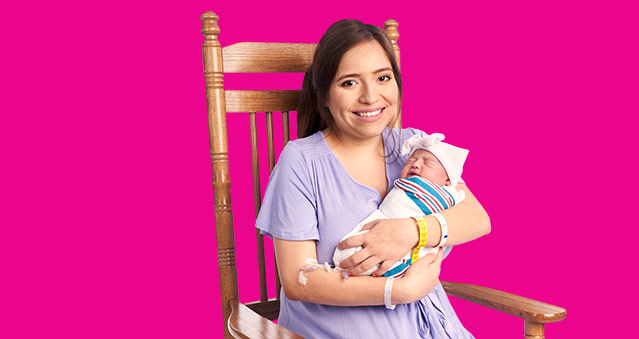Fetal Heart
Big Care for Tiny Hearts
CHRISTUS Health provides comprehensive fetal cardiac care to expecting families when there may be a risk of heart disease in the fetus. Our board-certified physicians and our multidisciplinary team can diagnose, counsel, create a delivery plan and provide postnatal care for fetal heart conditions.
Our state-of-the-art fetal echocardiography can detect a multitude of potential heart defects from 18-32 weeks gestation. If there are any abnormal results, our physicians provide families with evidence-based and informed counseling whose fetus has a congenital heart defect.
What is a Fetal Heart?
A fetal heart is the heart of a developing fetus. The fetal heart begins to develop in the very early stages of pregnancy and continues to grow and mature throughout the course of development.
The structure and function of a fetal heart are quite different from that of an adult heart, as they must be able to support rapid growth and cellular development during this period.
What Causes Heart Disease in the Fetus?
Some common causes include:
- Birth defects
- Exposure to certain medications or substances during pregnancy
- Maternal health conditions like diabetes or high blood pressure
- Genetic predisposition
- Poor nutrition
- Environmental factors
Some hereditary disorders can also increase the risk of developing heart disease in the fetus.
Signs and Symptoms
There are many signs and symptoms of heart disease in the fetus, babies and children, some of which include:
- Palpitations or irregular heartbeat
- Rapid or fast breathing
- Poor growth or weight loss
- Swelling in the abdomen, legs, or feet
- Cold hands and feet due to poor circulation of blood
- Changes in skin color, such as blueness or pale appearance
With early diagnosis and treatment, many cases of fetal heart disease can be managed successfully.
Risk Factors
There are several risk factors associated with heart disease in the fetus, including:
- Genetic conditions or inherited disorders: Some genetic conditions and inherited disorders can affect the development of the cardiovascular system in the fetus, including their risk for heart disease.
- Congenital defects: Certain congenital defects, such as holes in the heart or other structural anomalies, can also increase the risk of heart disease in the fetus.
- Preterm birth: Babies born prematurely are at a higher risk for developing heart disease, as their bodies may be less able to adapt to changes in oxygen and nutrient levels.
- Poor maternal health during pregnancy: Poor nutrition and stress, as well as certain medical conditions like high blood pressure or diabetes, can negatively impact the cardiovascular system in the fetus.
Diagnosis
Heart disease in the fetus can be diagnosed through a variety of different tests and procedures. All of these methods are non-invasive and provide useful information about the health of the baby’s heart. These tests include:
- Ultrasound
- Fetal echocardiography
- MRI scans
Treatment
There are several different treatment options available to help manage and treat heart disease in the fetus:
- Medication
- Dietary changes
- Surgery
Prevention
Some of the most important steps include having a healthy pregnancy, making lifestyle choices, and working with your doctor to monitor your baby’s health as early as possible. These include:
- Maintaining a healthy weight
- Eating a balanced diet
- Getting regular exercise
- Avoid smoking
- Avoid drinking
- Getting enough sleep
- Managing stress levels
CHRISTUS Children's
CHRISTUS Children's is a leader in diagnosing and treating fetal heart conditions. We provide comprehensive, coordinated care for children from birth to age 18. Our caring teams are committed to providing high-quality service in a comfortable and safe setting.
Visit CHRISTUS Children's

